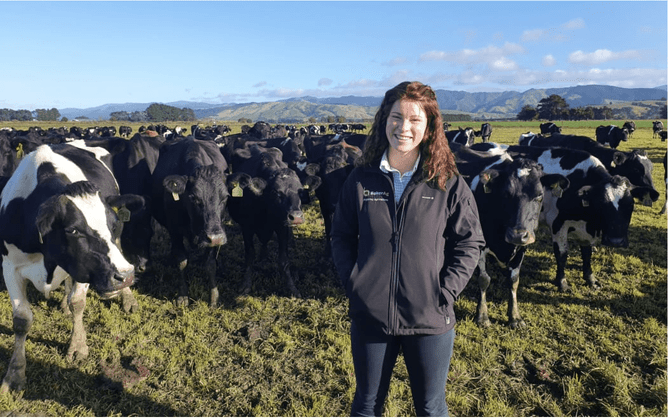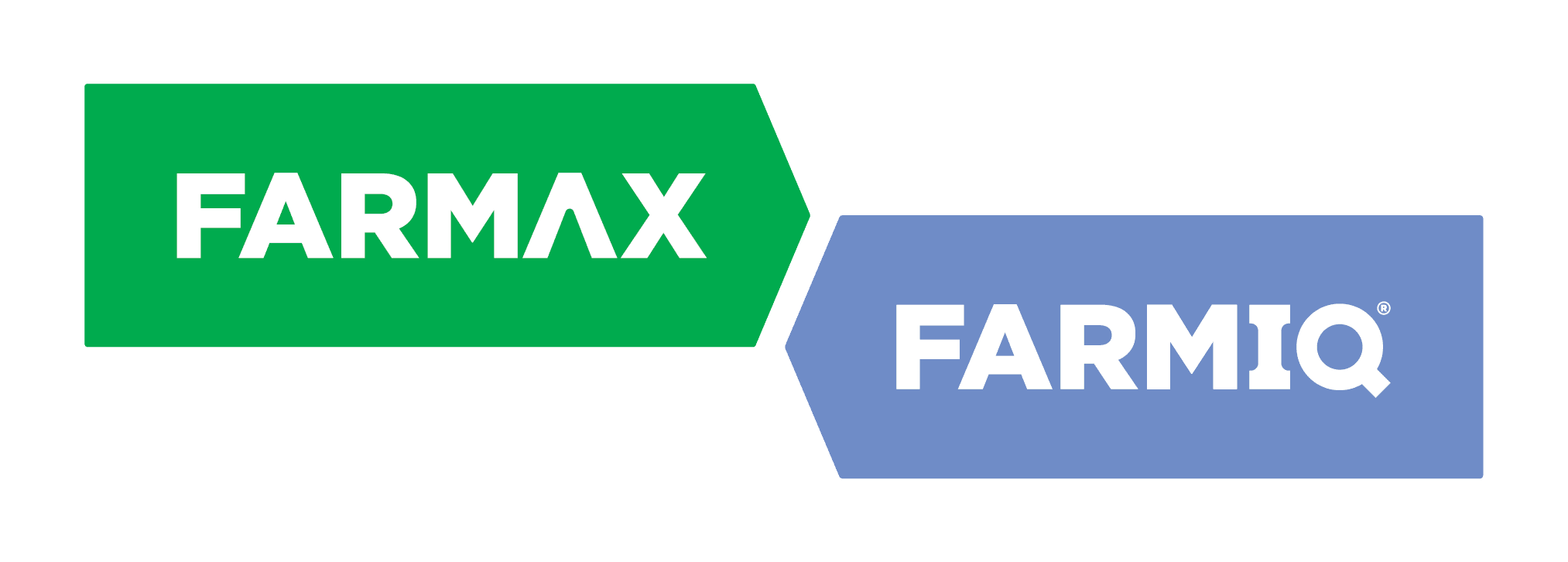Sarah Hawkins, dairy and environmental consultant at BakerAg, won the Emerging Rural Professional of the Year Award in 2023.
She says the award itself is awesome for the recognition, but it’s more about the connections she’s made because of it.
Part of the award prize included money to put towards research, overseas travel or professional development, and Sarah has used her funds to undertake some personal coaching to enhance her relational and communication skills and nurture her connections.
She says the coaching has been really useful so far, helping her better understand her personality and how it comes into play when working with different types of people at work, clients on farm, or colleagues in the wider industry.
“It’s to help me understand who I am, how I think and how I interact with other people based on my personality type and I guess who I am and also understanding how other personality types will respond to that, just in terms of me in a workplace,” explains Sarah.
Sarah’s role at BakerAg is quite unique, in that it encompasses a variety of different tasks and areas of focus, and she’s able to work with a diverse group of people.
“I do work with my clients which I love; I get to work one-on-one doing farm environment plans; I facilitate a discussion group with local dairy farmers, helping achieve that group learning. I am also a part of BakerAg’s integrated farm planning workshop series, which was funded by MPI, where I speak at a SME on environmental learnings.
“The range of that is really really cool…I'm really lucky I get to work across all sectors in different settings.”
As a dairy expert, Sarah spends a lot of time in the paddock with farmers, and she knows how tough it is in the industry right now and that some hard decisions need to be made.
“It's not a particularly happy place out there at the moment, I'm going to be honest. It’s hard because you've got to have some tough words at times,” says Sarah.
This is part of the reason why she’s used her prize money to work on personal coaching, to make sure she can communicate effectively and help clients and colleagues when things are challenging.
“You’ve also got to be mindful about making sure that your conversation isn’t going to tip farmers over the edge and that you can provide support in a way that's useful. You have to be pretty aware of it because you're actually in their finances and their physicals and telling them that this decision didn’t work out and this is what it’s cost you.
“At times they can lash out and I want to be able to manage those situations and respond effectively. They're unhappy at the situation, but it's directed at you.”
“It's not a particularly happy place out there at the moment, I'm going to be honest. It’s hard because you've got to have some tough words at times.”
There’s also the matter of environmental legislation and logistics which is a big source of stress for many farmers. Sarah believes that even if the current government doesn’t enforce new environmental rules on farmers, it’s a matter of when, not if, they arrive.
“It doesn't matter where it's coming from because it is actually coming. Fonterra, using its co-operative difference, is requiring farmers to meet three out of five environmental regulations and one of those is to not discharge effluent water, so if you do still do that – even if it is a consented activity – you will no longer be able to supply Fonterra.
“It’s coming with greenhouse gases; it’s coming with animal welfare. There is no point saying ‘no, I don't have to do it, the government said I don't have to’. Your processing company will say you have to and if you want to make money, you need to be able to meet their requirements,” says Sarah.
She acknowledges that there is a lot of confusion with regulations constantly changing and milestones shifting, but in the end, the regulations or changes will end up being enforced.
“In my mind, it's as simple as that. If you start collecting and understanding any existing farm plan or environmental data already completed for your farm, and start to understand it, you may find that you'll know more about your own farm anyway which can be beneficial in other ways (financially),” encourages Sarah.
Things are cold and dry right now, with little rain in some areas and grass growth really slowing down or stopping altogether. What is the most important thing people can do right now?
Know your numbers, says Sarah, both physical and financial ones.
“You’ve got to be a realist while also actually knowing your farm and your numbers because that's the starting point – then you can make a plan, and you can change that plan every month if you need to, but at least you’ve got a plan that you can work towards.”

